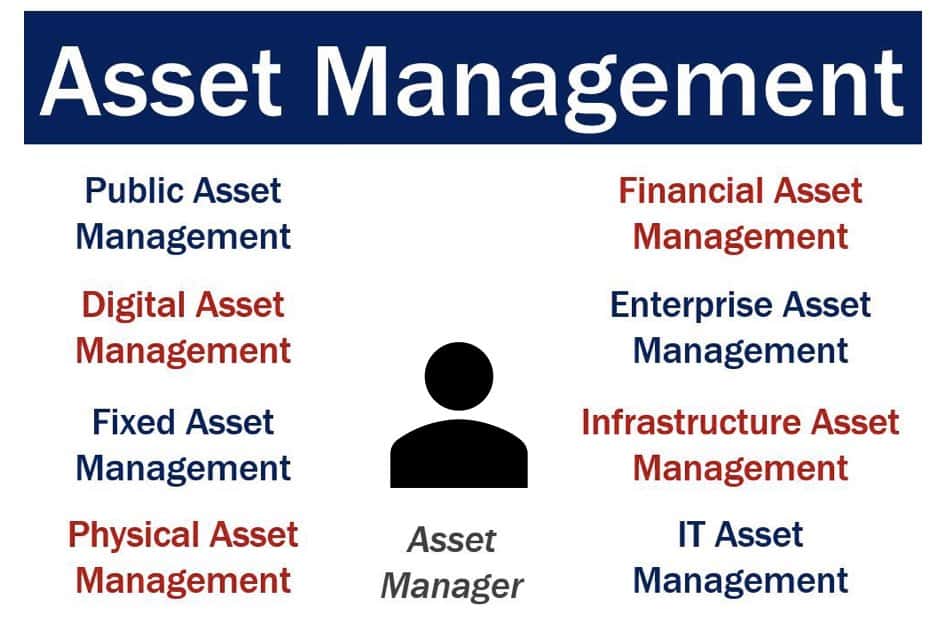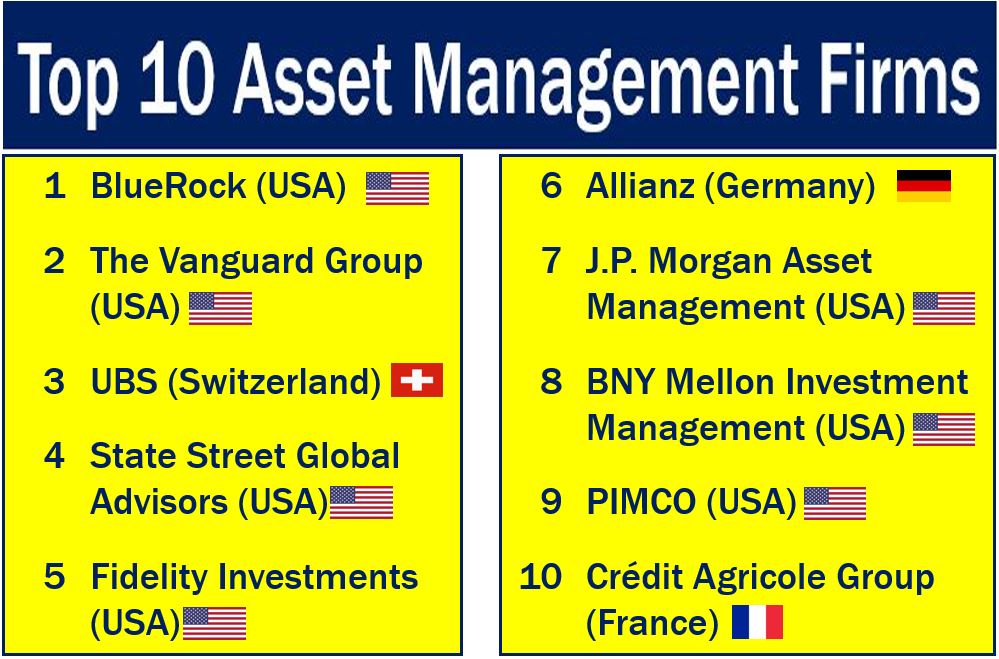Asset management – definition and meaning
Asset Management refers to the management of people’s assets. The term also applies to dealing with other organizations’ or companies’ investments. Assets include either intangible or intangible assets.
Intangible assets are things we cannot touch such as intellectual property, goodwill, financial assets, or human capital. Tangible assets, on the other hand, are things we can touch and including buildings, land, computers, or office equipment.
Effective asset management also involves strategic planning to align with an individual’s or organization’s long-term financial goals.
Asset managers
The person in charge of managing other people’s assets is an asset manager or investment manager. The asset manager could also be a firm. Their aim, above all, is to make as much profit as possible for their client.
Asset management firms have expert portfolio managers, as well as access to internal, detailed equity research studies. Asset managers claim that this access gives them an edge over investors in charge of their own money.
In other words, asset managers claim they are better at making investments grow than their clients.

In accounting and finance, an asset is anything with an economic value that we can own.
The Institute of Asset Management has the following definition for the term:
“Asset Management is the coordinated activity of an organization to realize value from assets. It involves the balancing of costs, opportunities, and risks against the desired performance of assets, to achieve the organizational objectives.”
“This balancing might need to be considered over different time frames. It is the art and science of making the right decisions and optimizing the delivery of value.”
Asset managers typically work for rich people, sovereign wealth funds, corporations, governments, and pension funds.
These specialized individuals or firms charge a fee. In most cases, the fee is a percentage of managed funds. They may also take a percentage of profits, although this starts to encroach upon hedge fund territory.
Furthermore, asset management plays a pivotal role in diversifying investment portfolios to spread and mitigate potential risks.”
Asset management is a huge industry
According to Forbes Personal Finance, asset management is a giant industry, with a collective $53 trillion under management.
The State Government of Victoria in Australia says asset management is relevant to the whole of asset life. Additionally, it encompasses the four main stages of the asset life cycle, which are:
- Informed and hands-on decision-making regarding asset investment.
- Procurement of suitable assets.
- Maintaining, upgrading, and operating assets.
- Managing asset treatment at the end of their useful life.

The Financial Times Lexicon defines asset management as:
“The managing of money for investment so that it makes as much profit as possible, for a financial institution or for another person or organization. The managing of a company’s property so that it is used in a way that makes as much profit as possible.”
Vocabulary and concepts
There are many terms in business English related to “asset management,” especially compound nouns. A compound noun, such as “asset management plan,” is a term consisting of two or more words. Let’s have a look at some of them, their meanings, and how they are used in a sentence:
-
Asset Management Company
A company that invests its clients’ pooled funds into securities that match declared financial objectives.
Example: “The asset management company released its quarterly earnings report, which showed a significant return on investments.”
-
Asset Management Plan
A strategic plan detailing the management of an organization’s assets to deliver the organizational objectives.
Example: “The municipality developed an asset management plan to ensure the optimal operation of its infrastructure assets.”
-
Asset Management System
The system and processes that an organization uses to manage assets across departments, facilities, business units, and geographical locations.
Example: “Their asset management system was updated to improve efficiency and integration across several departments.”
-
Asset Management Strategy
A long-term approach to managing a company’s valuable resources to achieve the business’s financial goals.
Example: “The CEO emphasized the need for a robust asset management strategy to navigate the volatile market conditions.”
-
Asset Management Account
A type of account offered by financial institutions that allows customers to keep cash and securities in one account.
Example: “He consolidated his finances into an asset management account for ease of monitoring and control.”
-
Asset Management Advisor
A financial professional who helps clients manage their assets in a way that aligns with their investment goals.
Example: “After inheriting a large sum of money, she sought the services of an asset management advisor to make informed investment decisions.”
-
Asset Management Policy
A set of guidelines and principles that guide an organization’s asset management practices.
Example: “The board approved a new asset management policy to better align with the latest industry standards and regulations.”
Two Videos
These two educational YouTube videos come from our sister channel, Marketing Business Network. They explain what the terms “Asset Management” and “Assets” mean using easy-to-understand language and examples:
-
What is Asset Management?
-
What are Assets?

